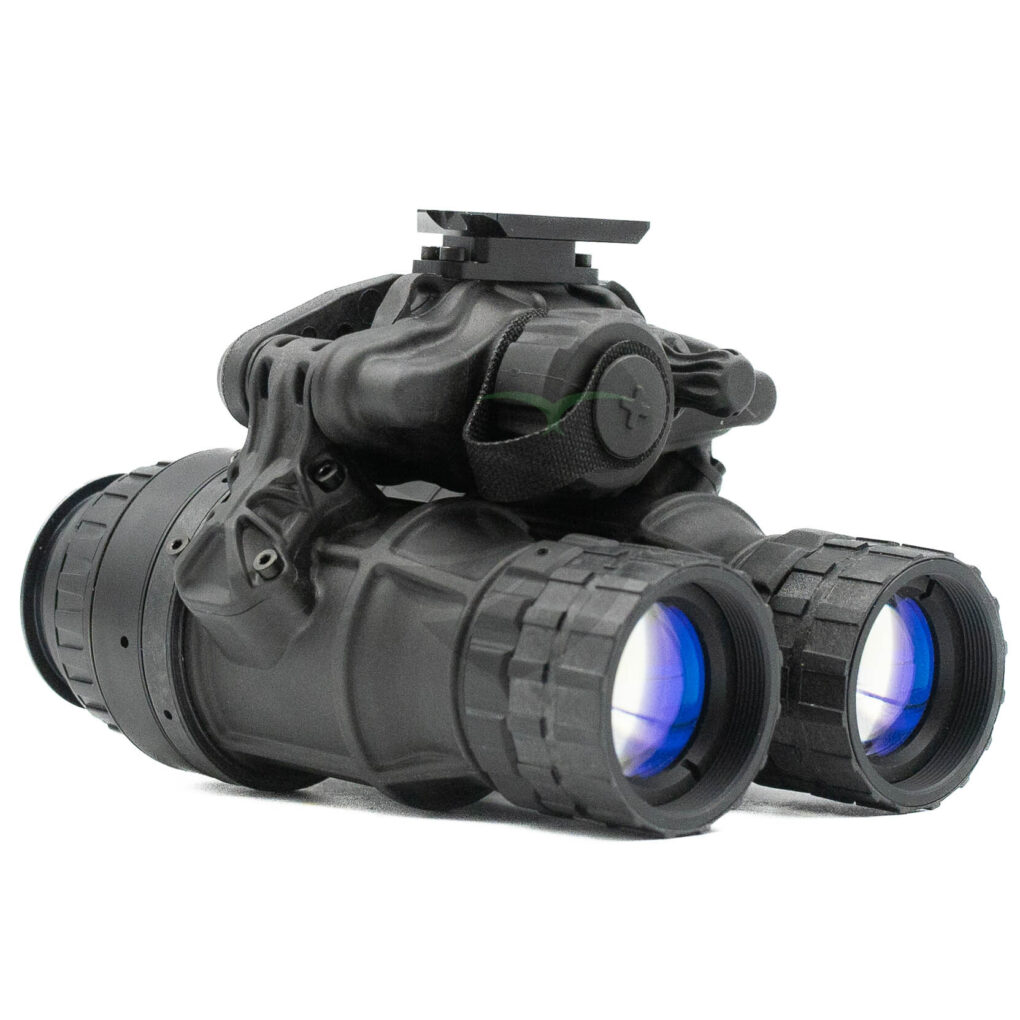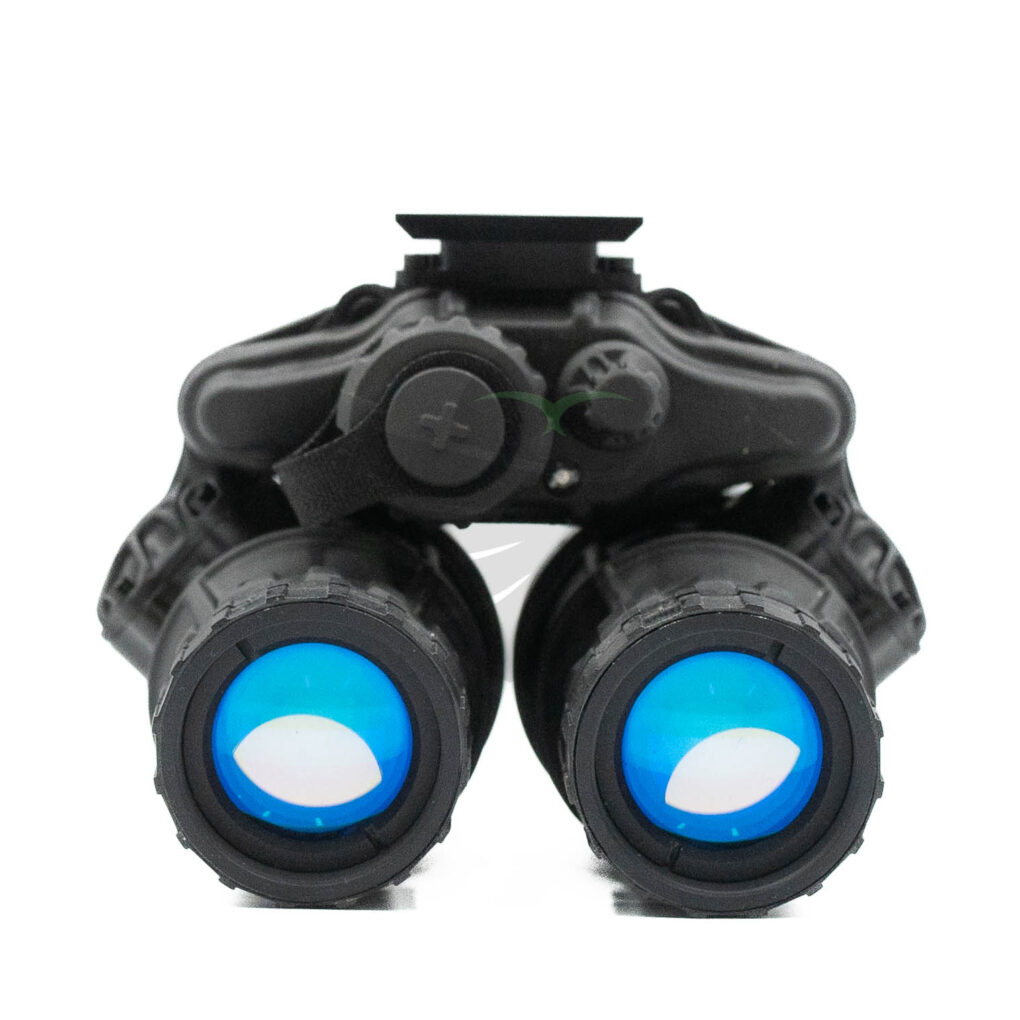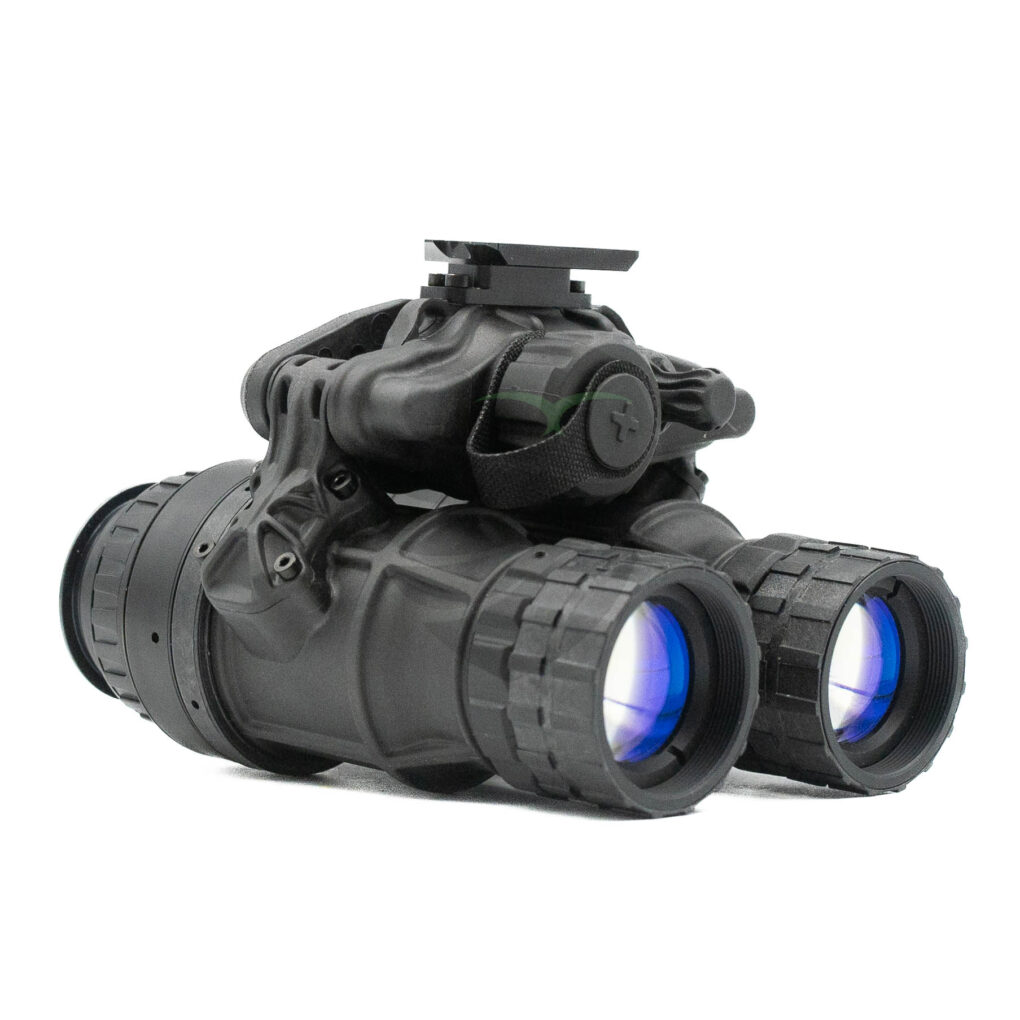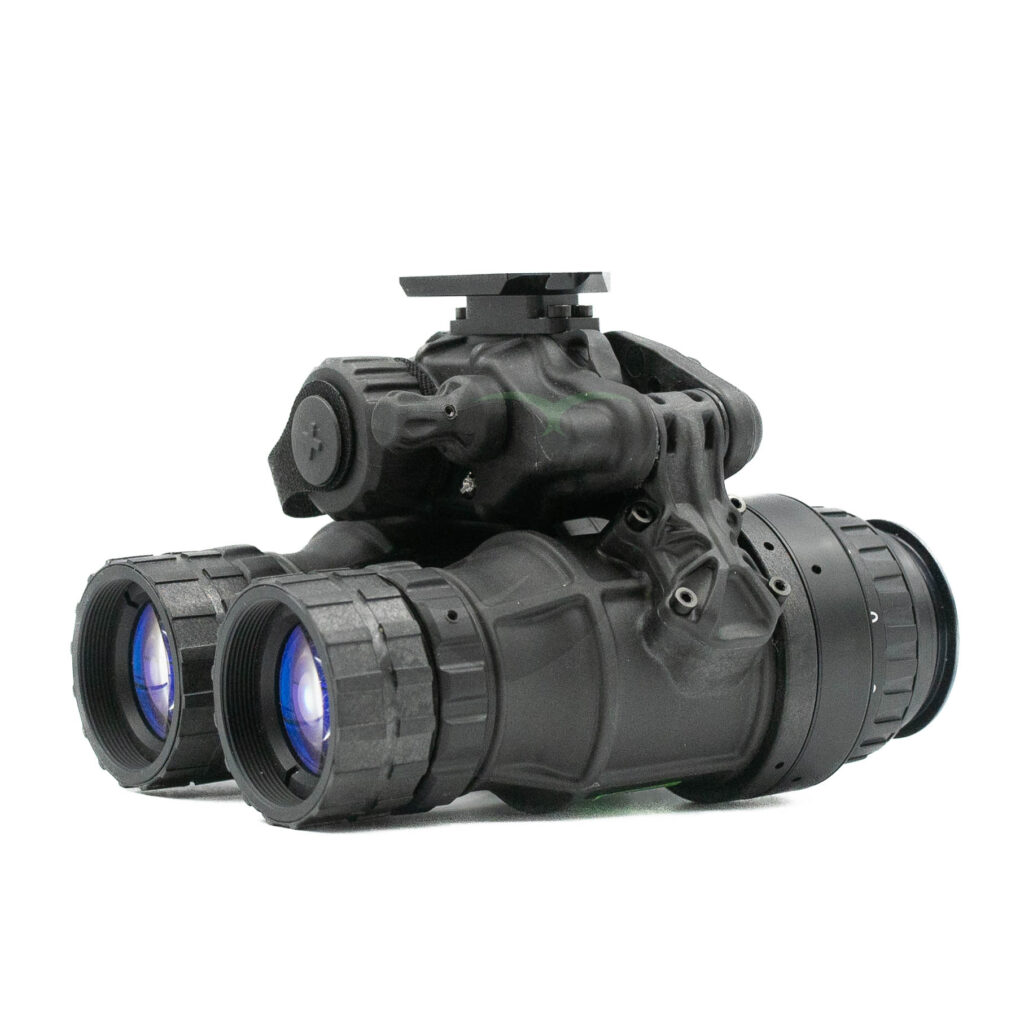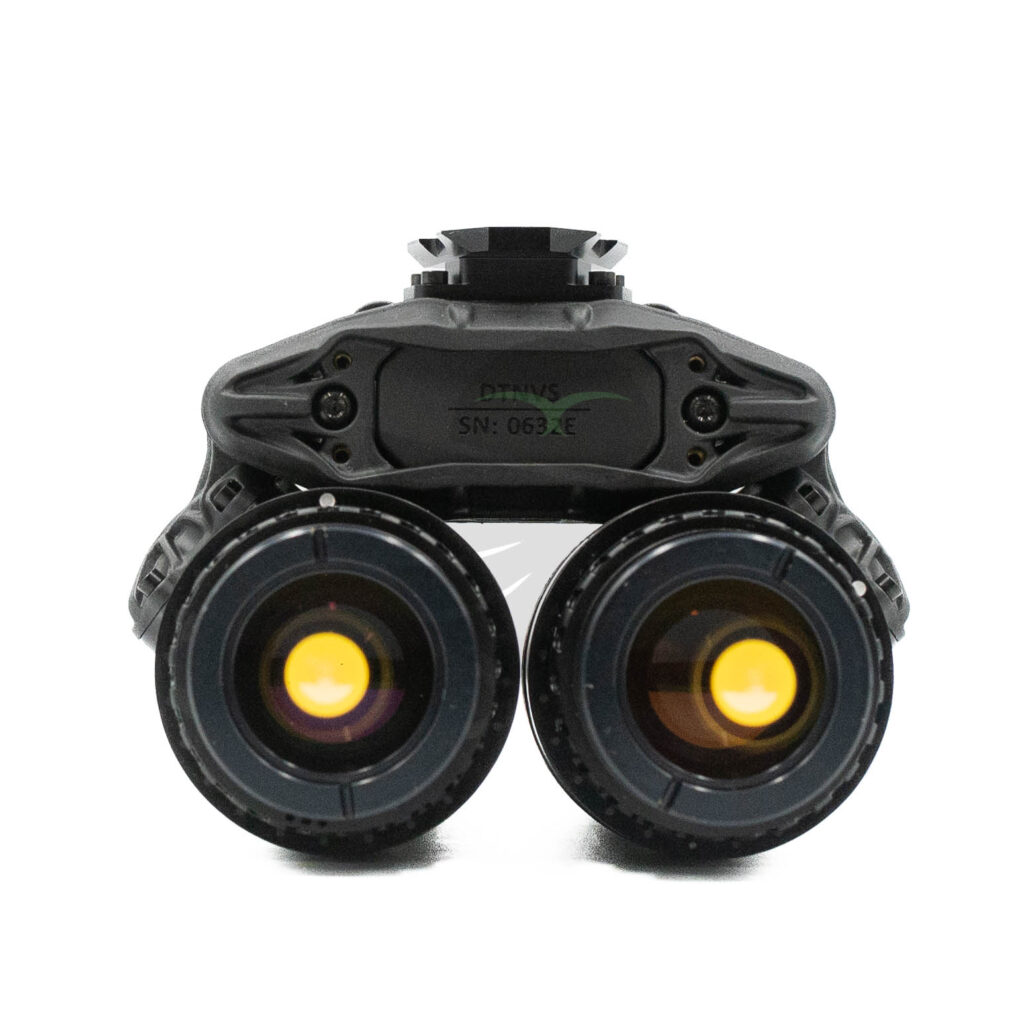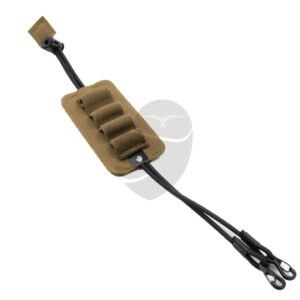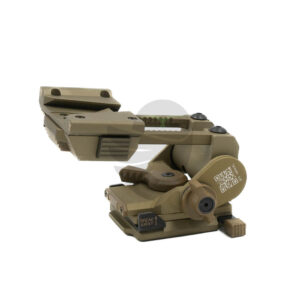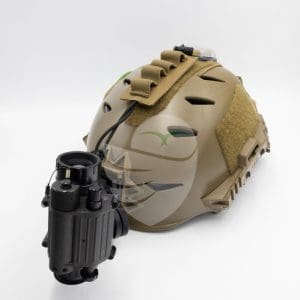HAND SELECT PROCESS
Our hand select program gives you the ability to choose the exact image intensifier that meets your needs before its built into a system. Whether you’re looking for the highest FOM, minimal EBI, low halo, or a perfect balance of specs, we give you full visibility into available tubes and help you make the right call. Simply select “yes” from the drop down menu and one of our representatives will reach out to discuss tube options. If you choose not to hand select your tube, rest assured you will receive a tube that meets or exceeds the tubes minimum performance requirements. Great for those who want to save time, and simplify the process, or aren’t concerned with minor spec variations.
WHAT’S INCLUDED?
One SI/DTNVS-MG Night Vision Goggle; two objective lens caps; two eyepiece covers; Steele Industries hard case; warranty card; quality control report; spec sheet.
TUBE SPECS
Our SI/DTNVS-MG Goggle is offered in various image intensifier options:
ELBIT COMM-SPEC THIN FILMED WHITE PHOSPHOR
- Commercial Spec Image Intensifier
- Auto-Gated
- Thin-Filmed Technology
The commercial spec Elbit option is great for those who are on a tighter budget or simply do not want to drop the additional money required for a mil-spec tube. This option will still give you Gen 3 performance which is sure to impress! This option will give a MINIMUM FOM of 1,536 but in many cases exceeds this value.
ELBIT MIL-SPEC THIN FILMED WHITE PHOSPHOR
- Mil-Spec Image Intensifier
- Auto-Gated
- Thin-Filmed Technology
The mil-spec Elbit options benefit from stricter requirements on spots allowed, specs, and more. These options are great for those that desire mil-spec performance but still wish to take advantage of the savings associated with Elbit image intensifiers. There are two options available, a 1,600 and 2,000 minimum FOM. This adds another layer of refinement for the consumer in regards to tube selection.
L3 UNFILMED WHITE PHOSPHOR
- Unfilmed Technology
- Aviation Spot Tolerances
- Auto-Gated
The L3Harris tubes are held to an aviation spot tolerance which is the strictest available. On top of that, they are held to military spec requirements to ensure each tube conforms to a variety of performance metrics. For those that desire to experience the advantage associated with unfilmed technology, it is now possible at various budgets levels thanks to our multiple minimum FOM options. Whether you’re on a tighter budget that lends itself to a 1,500 minimum FOM, a higher end budget that affords you the opportunity to acquire a 2,400+ FOM tube, or somewhere in between, there is an option for you.
This device takes advantage of the manual gain capability of MX-11769 format tubes, allowing the user to manually adjust the device’s gain level. Please note that manual gain control does NOT take the place of automatic brightness control (ABC) which is present in all image tubes that we sell and regulates the image brightness without user input. These features work in conjunction to give the user the best image possible.
SPECIFICATIONS
Features:
- New front plate design
- Direct screw inserts to attach IPD module
- Manual Gain support for all tube manufacturers and manual gain tube types
- Adjustable IR Output
- 10 year warranty and limited lifetime service
Assembled in house with our accredited ISO 9001:2015 process and procedures
TECHNICAL SPECIFICATIONS
| Power Source | x1 CR123 Size Battery |
| Focus Range | 9.8″ To Infinity |
| Operation Time | Approximately 25 Hours On A Lithium Battery |
| Magnification | 1x |
| Field Of View | 40 Degrees |
| Diopter Adjustment | -6 To +2 |
| Eye Relief | 25MM (Standard Mil-spec Options) |
| Weight | 522g (Standard Mil-spec Optics) |
| Dimensions | 4.3″L x 2.9″H x 4.1″W |
| IR Illuminator | Built In |
| Water Resistance | Submersible To 66FT |
| IR Led & Low Battery Indicators | Yes |
| Intensifier Tubes | Compatible With MX-11769 & MX-10160 |
| Optics | Compatible With PVS-14 Style Eyepieces & Objectives |
RESTRICTIONS
ITAR (International Traffic in Arms Regulations) and EAR (Export Administration Regulations) Compliance Statement:
By ordering any product(s) from Steele Industries Inc (the “Site”), you certify that you, or third-party entities at your direction, will not sell, transport, ship or transfer outside the borders of the United States, nor to any foreign person*, any product(s) which are export-restricted by U.S. export-control law and regulation, without proper U.S. Government export authorization, licensing, and documentation.
Export-restricted items include, but are not limited to, firearms, ammunition, electronic equipment, certain gear and firearm accessories, weapon-mounted or handheld optical equipment including rifle or handgun scopes, night vision and night vision accessories, holographic sight systems, “red-dot” optics, thermal vision, and tactical lights and lasers, knives, and body armor including vests, helmets and shields.
Export, or attempt to export, any controlled or prohibited items outside of the U.S. without complying with U.S. export control regulations can result in severe civil and criminal penalties and/or constitute a federal crime. Steele Industries Inc. will not participate in any transaction, directly or indirectly, involving the illegal export or re-export of any prohibited items.
Under ITAR § 120.16 means “any natural person who is not a lawful permanent resident as defined by 8 U.S.C. § 1101 (a)(20) or who is not a protected individual as defined by 8 U.S.C. § 1324b(a)(3)”, and can mean “any foreign corporation, business association, trust, society, or any other entity or group that is not incorporated or organized to do business in the U.S., as well as international organizations, foreign governments, and any agency or subdivisions of government (e.g. diplomatic missions).”
All orders placed on our website require the customer to complete and sign an ITAR (International Traffic in Arms Regulations) form to ensure compliance, timely processing and shipment. Failure to comply with this requirement will result in order cancellation and may incur a 3% cancellation fee. If you have any questions or concerns regarding the necessary forms, please contact us at sales@steeleindinc.com for assistance.
WARRANTY
Unless otherwise stated, Steele Industries Inc Night Vision products are guaranteed to be free from manufacturing defects in both material and workmanship under normal use for a period of ten (10) years from the date of purchase. In the event that a defect covered by the warranty occurs during the applicable period stated above, Steele Industries Inc, at its discretion, will either repair or replace the product; such action on the part of Steele Industries shall be the full extent of Steele Industries Inc. liability, and the Customer’s sole and exclusive reparation. Steele Industries Inc also offers a limited lifetime service on all branded night vision devices. This allows customers to send us their branded night vision devices for re-purging, O ring replacements, and cleaning. This warranty does not cover a product if it has been:
A. Used in any way other than its normal and customary manner
B. Subjected to misuse or improper operation
C. This includes using rechargeable batteries, storing the product with batteries left in it, or battery compartment corrosion due to faulty batteries
D. Subjected to alterations, modifications or repairs by the Customer or by any party other than Steele Industries Inc without prior written consent of Steele Industries Inc
E. Items specifically requested by a customer that are not part of Steele Industries Inc’s regular inventory. These products may have unique configurations or come from third-party suppliers and are therefore excluded from warranty coverage.
F. Discontinued by the manufacturer and either parts or replacement units are not available due to reasons beyond the control of Steele Industries Inc.
To read more about our warranty please click HERE


